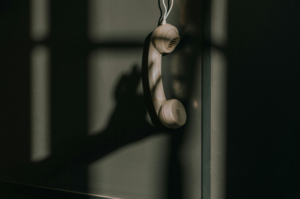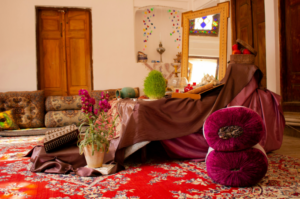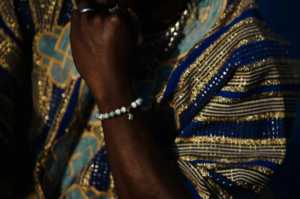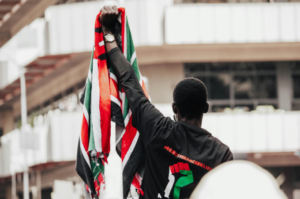
Krinesh leaned against his Mercedes and watched Janu emerge from the dense sugarcane stalks, carrying a dead cane rat by its tail in one hand, and a wooden knobkerrie in the other. It was late afternoon and the sun was low, but Krinesh could easily make out the big, dumb grin on his wife’s cousin’s face – the cane rat’s crushed head and bloody knobkerrie were also hard to miss.
Janu bounded up the muddy ditch on the side of the road, and dropped the rat at Krinesh’s leather loafers. Krinesh moved his shoes. He wasn’t sure what this limp, furry animal about the size of a small dog was really called, but that was what Janu had shouted out before running after it into the field five minutes ago. Janu was an imposing man. He was more than a head taller than Krinesh, three years younger, and had the broad, muscular build that many of the men in his wife’s family possessed – the bodies of farmers and labourers. Krinesh had been impressed by how quick Janu moved, following the darting rodent through the sugarcane. Janu had the feral look of a hunter, and not the avocado and butternut farmer he was in his day-to-day life.
“It makes a good chow,” Janu said, toeing the cane rat with his boot, and flopping against the Merc in his dirty overalls. They were parked in a deserted dirt road straddling a plantation near the South Coast town of Sezela – a hundred kilometres from Durban. Janu then reached into his overalls’ bib pocket and pulled out a bunch of plants that Krinesh recognised as something called “wild herbs,” which supposedly only grew in sugarcane fields, and which were used to make a simple braised curry. Nitu, his wife, would sometimes reminisce to him about how she would, as a child, go foraging for the herbs in the cane fields with her siblings and cousins, who all lived in small holdings around Sezela. She loved wild herbs curry and never got a chance to eat it in Durban – it wasn’t exactly something Woolworths stocked between fresh kale and pots of basil.
Nitu rarely visited Sezela anymore, and that was Krinesh’s doing, admittedly. He hated visiting the barely-lit, cramped, rundown tin houses that Nitu’s family and extended family lived in, or trying to make conversation with people he had nothing in common with, or being expected to eat food with bizarre, disgusting ingredients he had never heard of before. He had been there twice, once to meet her parents and the other time for Nitu’s father’s funeral. That was more than he ever needed to set foot in that dump. And he had made that very clear to Nitu. If she wanted to be married to him, she would have to forget and leave behind the plantation ways. It might have seemed cruel to an outsider, but there was nothing for Nitu in this place – a life of misery and poverty, marrying one of her thousand cousins, and popping out baby after baby in a damp hovel. Nitu must have recognised this truth because she never once complained, in the two years that they had been married, about missing her family, or the farm. In fact, she had adapted quite well to their luxury eight-bedroom uMhlanga beachside property – all paid for by a husband who was one of Durban’s most successful bottle store owners. You couldn’t really compare pining for wild weeds with Gucci handbags and twice-yearly shopping trips to Dubai.
“It’s tasty to eat with this,” Janu said, waving the plants in his face. He still had the same inbred imbecile grin. Krinesh was beginning to understand more and more why Nitu had insisted that Janu would be the right man for the job. There was really nothing going on there inside his skull. He would do as he was told, and not worry about whether it was right or wrong.
“I’m sure,” Krinesh replied, moving away from Janu and from the dead creature. He felt a bit sorry for it, seeing its tiny paws in the air. It had been alive only a few minutes ago and now it was dead. There was something brutal and cruel in these sweet fields, something suffocating, even in its abundance of green and wildlife.
It reeked of death. But it was time to forget these diversions and to get back to why he was here to meet Janu in this godforsaken backwater. He had sorted most of the details over the phone, but he needed to deliver the money in person – so that there was no way it could be traced back to him.
Krinesh brought out the backpack from behind him and handed it to Janu. In it was an envelope filled with cash and, at Nitu’s insistence, a parcel of baked goods that was, apparently, one of Janu’s favourites. He had no idea what it could be. It was so light. Maybe idlis, puris or rotis, given the parcel’s round, curved shape.
“So, we agreed?” he said. “Five thousand.”
“For sure, Kri, my bra. I told you on the phone. If Nitu and you want him gone, he’s gone. No questions asked – for family.” Janu drummed his chest with his fist twice, before taking the backpack from him. He opened it, removed the envelope, and pocketed it, then took out the parcel wrapped in foil. He smiled when he saw it.
“Nitu said she made it for you,” Krinesh said, forcing a smile back at him. Janu didn’t even notice him and was instead fondling the foil. He seemed more interested in Nitu’s flatbread than the five grand in the envelope. Krinesh wasn’t all that surprised by this. Nitu had told him many times that she was Janu’s favourite cousin and that he was fiercely loyal to her – he even once falsely admitted to stealing a jackfruit that Nitu and her friends had nicked from a big landowner. He took five lashes for her on that occasion. She told Krinesh that she had never forgotten that loyalty.
“And you know where Ramsamy is going to be, right? Should I go over it again?” Krinesh said, breaking the spell that the parcel seemed to have over Janu.
“Ten o’clock. Sunday night. Pennington Rotary. I’ll poke him in the parking lot. He’ll be driving a Jag,” Janu said, dropping the parcel to his side, and turning to Krinesh.
“And you’ll make it look like a hijacking.” Janu nodded. Krinesh smiled – genuinely.
It had been Nitu’s idea. Krinesh would have never thought of it himself. He had been trying for more than a year to buy Tollway Liquors from Ramsamy, and to add it to his growing portfolio of five bottle stores. Tollway was in Musgrave and did good numbers. But it was more about the prestige of the store. A lot of VIPs shopped there.
But, despite the fact that Krinesh had offered him well above market rate, Ramsamy kept turning him down. He said he wanted to keep it for sentimental reasons – it was one of the first bottle stores he had opened. Krinesh had given up on ever owning it until Nitu told him bluntly at a spa date a month ago that they should get rid of Ramsamy – or “take him out,” as she had put it. Ramsamy’s widow would be much more amiable to selling, she said. Krinesh had scoffed at first, but when Nitu said that her cousin could do it and do it for barely nothing, he began to slowly come around. She said she would arrange everything with Janu, and that all Krinesh had to do was to take the money to him, and to give him the time and place.
Krinesh had been shocked by Nitu’s nonchalance about ordering a hit on a man that they had had over for dinner parties, and whose wife she lunched with regularly, but he wasn’t surprised by her ingenuity in coming up with the scheme. Nitu was smart. Dead smart. True, it was her beauty and her voluptuous body filling her uniform that he had first noticed when he hired her to work as a cashier at his South Coast store, but he soon promoted her to assistant manager and then manager. Something she had more than earned on her own merits – though the late-night trysts they shared in the store’s warehouse didn’t hurt. She had also saved him money by streamlining much of the everyday operation, getting rid of fat that he hadn’t seen on the books. It didn’t matter that she came from farm trash and hadn’t been to the private schools he had been to. Nitu had transcended her roots.
She was exactly the sort of ambitious, intelligent woman that he wanted as a wife, a woman to continue building the empire he had started with a single store inherited from his parents. Even when he suggested that they begin thinking about children, Nitu said it could wait until the businesses grew more. They were on the same page. Simpatico. When they married, he put the stores and their home in both their names. It was against his lawyer’s advice but his lawyer didn’t understand what sort of woman she was. How far she would go for him. And arranging the hit on Ramsamy was the clearest proof of this. He was married to the perfect woman.
“That’s good,” Krinesh replied, awkwardly tapping the brute on his shoulder, and regretting it as he felt the grime. “And don’t spend the money all at once. It will make people suspicious.”
“For sure, Kri,” Janu said, bringing the parcel out again. He smelt it, and began to unwrap the foil carefully.
“Can’t you wait with that?” Krinesh said. “I need to get going.” That much was true. He would have to find his way out of this backroad labyrinth himself. It had gotten darker in the past few minutes. Night came quickly on the South Coast. And it was much more noticeable in places like this, without any street lamps or houses for kilometres. Janu ignored him. Krinesh rolled his eyes. Not that Janu would have noticed. He was completely fixated on the treat Nitu had prepared for him. Let him enjoy that cold, stiff bread with his rat, and cane field weeds. He had told Nitu to order in from his regular restaurant, Tony’s, tonight. Ironically, it was one of the last places where he had met Ramsamy in his attempt to convince him to sell. He remembered that Ramsamy had eaten a decadent prawn bisque — which Krinesh had paid for. Maybe he should order that tonight to celebrate. The thought filled him with amusement.
Janu unfurled the foil, and his face lit up. Simple minds. Simple things. “It smells nice,” Janu said to himself. The foil was unwrapped, its sides erect, so Krinesh couldn’t see the flatbread but there was a distinct smell in the air. What was odd was that it smelt like musk and roses – not bread. A smell he had a faint recollection of. He could have sworn that it was the Pears’ deodorant that Nitu wore when she was still a cashier, a cheap Take‘nPay buy that she said was her favourite. When they began dating, he forced her to chuck it, and replaced it with more suitable perfumes he had bought overseas. Krinesh edged closer to Janu, and saw him lift something from the foil, something that didn’t look like puri or roti at all. It was dark so he couldn’t make it out at first, but, as he got closer, he saw what it was.
A brassiere.
What was going on?
Did that belong to Nitu?
Why was her old deodorant on it?
Why did she send it to Janu?
He tried to grab the bra from Janu, but he just laughed, and held it above his head, like he was toying with him. He had a look that Krinesh hadn’t seen before. He was happy. “Give me that,” Krinesh said.
“It’s mine. Nitu sent it for me. She’s mine.” He tried to reach for it again, but before he could, he felt the blow of Janu’s knobkerrie on the side of his face. He was too stunned to scream. He was down flat on the road, his mouth tasting dirt. His cheek was hot and wet. He saw the vague shape of the dead cane rat a few metres away. He wanted to be home in his bed in uMhlanga – eating prawn bisque. But even in his drowsy state it began to make sense.
Nitu wanted him gone. Taken out. And she was going to get her cousin to do her dirty work for her, like she always did. After everything Krinesh had done for her. Was it just about getting her hands on his money? Did she really think she could get away with this? He felt Janu’s heavy frame sit on his back, expelling the air from his lungs. It was difficult to breathe. “I’ll pay three times whatever Nitu promised you,” he said, though it came out more like a wheeze.
He heard Janu laugh from above, sitting harder on him. A cruel laugh. “You can’t give me what Nitu gives me,” he said. Before he could say anything else, he felt something soft and silky being slipped over his neck. It almost felt pleasant. Then it began to tighten.










COMMENTS -
Reader Interactions